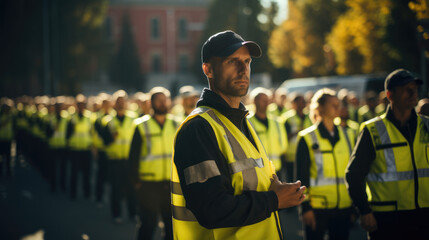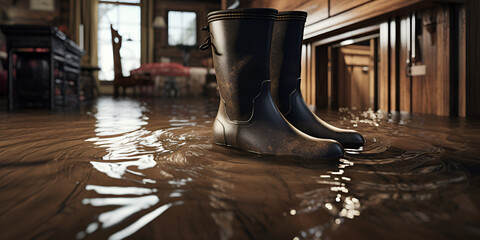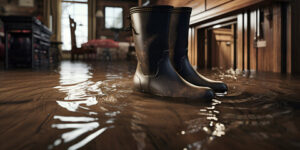Security Guard Jobs Philadelphia offer a stable career path, strong problem-solving skills, and specialized training. Whether working in healthcare, commercial buildings, post-secondary institutions, or industrial environments, security professionals protect people and property to keep communities safe.
Local neighborhoods, apartment complexes, and community security teams utilize security guards to monitor premises, conduct neighborhood watch programs, and function as a constant deterrent against crime. These guards control access, act as liaisons to emergency services, and manage security cameras.
Security guards monitor and ensure the safety of their facility, employees, visitors, and property. They patrol properties, respond to alarms, analyze security footage, and investigate suspicious behavior or incidents. They also maintain activity logs and prepare reports. They may also serve as a liaison between the company and emergency services. They may also perform clerical tasks, such as answering phones, making deposits, and securing valuables.
There are many different types of security guards. Some are armed, while others are unarmed. Armed guards typically have advanced training and must pass additional background checks and a psychological examination. They also must complete firearms and defensive tactics training. Other guards are specialized in providing personal protection for celebrities, executives, and dignitaries. These security personnel are known as bodyguards.
Local neighborhoods and apartment complexes frequently hire security guards to conduct neighborhood watch operations, control community access, and function as a continuous presence to deter crime. Corporate sites and office buildings use a similar model. These security officers typically supervise parking lot regulations, monitor surveillance equipment, and maintain a presence to deter crime. They may also assist employees entering and exiting the facility.
Airports, train stations, and bus terminals employ security guards to manage security checkpoints, oversee transportation infrastructure, and respond to any potential threats. They may also provide escorts for VIPs and other high-profile guests.
Some security guards work in industrial settings, such as manufacturing plants and warehouses. These guards monitor entrances, prevent theft of materials or equipment, and ensure compliance with safety protocols.
Security guards often collaborate with law enforcement agencies to provide assistance in the event of serious incidents. They are also responsible for enforcing laws and regulations related to privacy, trespassing, and other aspects of security.
The duties and responsibilities of a security guard can be stressful at times. They must be on-call at all times and be prepared to quickly respond to any incidents, requests for help, or other security concerns. A security guard must be alert at all times and be able to stay focused during long shifts, especially during nighttime hours. This is why security guard jobs are generally better suited to realistic individuals who are independent, stable, persistent, genuine, and practical.
Mobile Guard
Security guards on mobile patrol are a great option for those who want to keep their loved ones, businesses, and assets safe while they travel or visit new locations. They work in a variety of settings, including airports, hotels, and even events. They are trained to deal with a range of situations, and they frequently undergo drills to practice their responses.
In addition, they may be responsible for collaborating with law enforcement officers during investigations. This collaboration is especially important in a situation where a serious incident occurs. In such cases, the guards may be required to collect evidence or witness statements. They are also tasked with educating the public about safety protocols and how to stay safe.
They are also liable for reducing the number of motor vehicle traffic accidents in Canada. This is done by providing instructions to drivers, as well as by assisting them whenever needed. This is a very important service, as it ensures that people do not end up in dangerous situations that could be caused by ill-informed motorists.
Security guards are also tasked with protecting the property of their employer, including building and facility security. In this role, they may need to monitor the entrances of buildings and other facilities, patrol grounds facilities, or guard a specific security post. They must be able to identify and report suspicious activity, respond to alarms triggered by intruders or fire alarms, provide customer service assistance, and maintain order during events held at their facility.
In general, Security Guards have less responsibility than Security Officers and do not need to follow the details of a security management plan as closely. They usually need to complete a high school diploma or equivalent, as well as training in basic security guard techniques and methods. This training can include patrol techniques, customer service skills, weapons use (if applicable), and first aid/CPR certification.
In addition to these duties, security guards on mobile patrol must be able to communicate effectively and quickly in stressful or potentially tense situations. They must also be able to defuse conflict and make good decisions in emergency situations. They may be required to take action such as contacting police or other security officials, issuing warnings, and escorting suspects until the authorities arrive.
Security Supervisor
Security supervisors supervise and direct the activities of a team of security guards in commercial, residential buildings, events, and other settings. They conduct patrols, monitor surveillance systems, and help investigate incidents. In addition, they train and educate their teams on security protocols and procedures. They also collaborate with local law enforcement, as needed. Security supervisors also oversee the implementation of security measures, including more emergency response plans and surveillance equipment, to prevent theft, vandalism, and other security risks.
A security supervisor has robust familiarity with the visual and audio signals that security equipment such as alarms and closed-circuit televisions produce, so they can spot suspicious activity more quickly. They are also able to troubleshoot technical issues and keep the security system functioning properly.
If an incident does occur, a security supervisor is usually the first person to respond. They assess the situation, take action to diffuse tensions or resolve conflicts, and communicate with law enforcement officials as appropriate. They may also assist victims and their families in the aftermath of an incident, as well as review police reports to provide evidence for investigations.
For crowded events or public spaces, security supervisors ensure that all guests are accounted for and are safe in the event of a fire or other disaster. They often help individuals evacuate a building or facility by directing them to different escape routes. They might also escort people to safety, as needed.
Security supervisors also serve as liaisons between contract guard services, campus personnel, and students, as well as other outside constituencies like local neighborhoods and communities. They manage access control for all facilities, function as on-site liaisons for emergency services, and lead security training and drills for their staff members.
If an employee has questions or concerns about their work environment or schedule, a security supervisor is typically the person to speak with. They help resolve issues and prevent employees from becoming disgruntled or resigning from the company. For example, a supervisor might notice that an employee is often late to work or seems anxious or stressed out when on duty. They might then talk to the employee about the issue and discuss possible solutions.
Security Manager
Security managers direct and coordinate the activities of other security guards. They may work for private organizations or government agencies. Managers create and implement policies, train security guards, review incident reports and assess safety and security risks. They also perform other duties, such as monitoring surveillance equipment and access points to buildings and property.
A career in security management can be rewarding, with many entry-level positions requiring little or no qualifications other than a valid driver’s license and training. Most security guards enjoy the stability of the job and the opportunity to interact with the public on a regular basis. Many of the profession’s top performers earn more than £40,000 annually.
For a candidate to become a security guard, they must complete the required training and certification. Then they can apply to a variety of different job openings. The most important part of any job description is the responsibilities section, which outlines all the tasks that are expected to be performed on a daily basis. The more detailed the list of responsibilities, the better chance a company has of attracting qualified candidates who are willing to apply.
The duties and responsibilities of security guards are varied and can vary widely depending on the type of security position. Some security guard jobs focus on access control, while others are more focused on preventing theft or damage to property. For example, retail security guards patrol stores and monitor CCTV to prevent the theft of merchandise. They may also investigate suspicious activity and act as a liaison between the store and local law enforcement when a theft occurs.
Other security guard jobs include a corporate role, where the main focus is on access control and the protection of sensitive information. Some guards work in healthcare settings and ensure the safety of patients, visitors and staff. Others work in residential settings, such as gated communities and apartment complexes, where they patrol and manage access. Finally, some guards are employed at educational institutions to ensure the safety of students and faculty. Security guards can also find employment in transportation settings, where they manage security checkpoints and protect transportation infrastructure.



